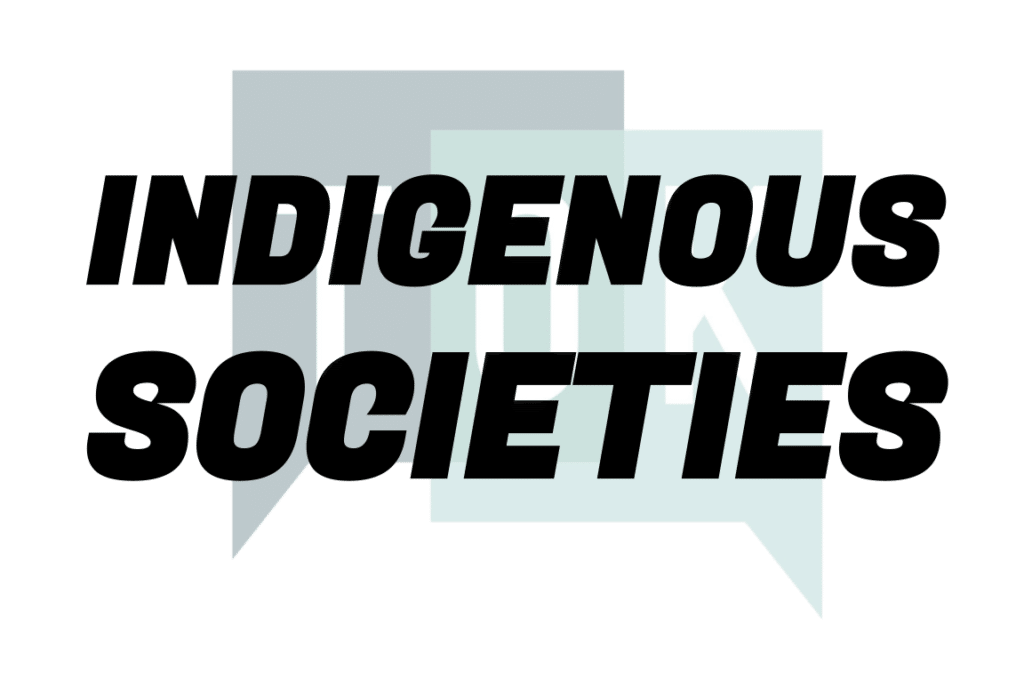
Welcome to the indigenous societies section of the site. This page will help you to take ownership of indigenous societies via a quick overview, and four padlets that offer you quotes, knowledge questions, real-world issues, and key thinkers relating to this optional theme.
You can use this content both to understand this component of TOK, and support discussions and arguments that you offer in your essay and exhibition.
Indigenous societies: a quick overview
The optional theme of knowledge & indigenous societies explores the relationship between indigenous communities and the acquisition, transmission, and interpretation of knowledge. It delves into the essential nature of indigenous cultures, emphasizing their unique perspectives, values, and worldviews. As we navigate this theme, we encounter several key concepts.
Culture takes centre stage, highlighting the rich tapestry of indigenous traditions, languages, and belief systems that shape their knowledge systems. Perspective is a crucial concept, as it underscores the diverse ways in which indigenous communities perceive and interact with the world around them. The notion of values prompts us to consider the moral and cultural dimensions inherent in indigenous knowledge, reflecting their deep connection to the natural world and their responsibility to protect it.
Two influential thinkers in the realm of indigenous knowledge and culture are Vine Deloria Jr., a Native American author and activist, and Winona LaDuke, an environmentalist and advocate for indigenous rights. Vine Deloria Jr. challenged Western perspectives on indigenous knowledge, advocating for the recognition of indigenous worldviews and their unique contributions to humanity’s understanding of the world.
Winona LaDuke, a member of the Ojibwe tribe, has been a prominent voice in advocating for environmental sustainability and indigenous sovereignty.
Contemporary issues related to indigenous knowledge revolve around cultural preservation and revitalization as indigenous communities seek to safeguard their traditional knowledge and languages from extinction. Additionally, discussions on land rights and environmental conservation highlight the clash between indigenous perspectives that prioritize sustainability and traditional land use, and external forces driven by economic interests.
Engaging with knowledge & indigenous societies invites students to explore the profound wisdom of indigenous cultures, embrace diverse perspectives, and critically examine the power dynamics that have historically marginalized indigenous knowledge and peoples. It underscores the importance of cultural understanding, ethical responsibility, and the preservation of indigenous wisdom in a rapidly changing world. This theme offers invaluable insights into the contributions of indigenous societies to our collective knowledge and the urgent need to protect and honour their cultural heritage.
1 QUOTES Who said “In an eagle there is all the wisdom of the world”?
Explore these quotes on indigenous societies by a wide range of different thinkers. Which quotes are the most and least insightful? How they challenge our assumptions about indigenous societies? What do they reveal about links between indigenous societies and other aspects of the TOK course?
2 KNOWLEDGE QUESTIONS Can we only know the culture in which we grew up?
Identifying and exploring knowledge questions (KQs) is at the heart of TOK, prompting us to reflect on our knowledge, evaluate whether it’s be based on a flawed or incomplete assumptions, and provide us with a focus point to improve our understanding of the world.
3 REAL-WORLD ISSUES How significant is art deprioritising western belief systems?
These examples will help you to understand how TOK ideas manifest in the real-world, take ownership of indigenous societies, link TOK to the latest global issues, and become an authentic critical thinker. They will also help you to justify and explore the discussions you offer in your essay and exhibition.
4 KEY THINKERS Why does Oren Lyons stress the ‘urgency’ of indigenous wisdom?
The thinkers in this padlet will help you to consolidate your understanding of indigenous societies, and challenge your assumptions about the world. You can also draw on their ideas to support your essay and exhibition discussions, and add depth and authority to the claims you make about knowledge.
INDIGENOUS SOCIETIES: DEEPER DIVES
Follow these links to access a range of notes, essays, and observations. Use them to research this optional theme, and hone the arguments you offer in your exhibition commentary.

Subscribe to the free TOK newsletter!
Subscribe to our free newsletter, and collect fantastic examples to help you understand the key TOK ideas, support your essay and exhibition, and make you an authentic critical thinker.
You’ll encounter some of the most important thinkers from the past and the present, go beyond the headlines of contemporary events and issues around the globe, and see how TOK concepts manifest in the real-world. Subscribe HERE!